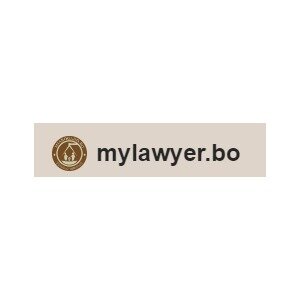Best Constitutional Law Lawyers in Bolivia
Share your needs with us, get contacted by law firms.
Free. Takes 2 min.
Or refine your search by selecting a city:
List of the best lawyers in Bolivia
About Constitutional Law in Bolivia
Constitutional law in Bolivia pertains to the interpretation, application, and analysis of the Bolivian Constitution, the supreme law of the nation. The current Constitution was enacted in 2009 and serves as the legal foundation for governance and the protection of rights. It outlines the structure of the state, the separation of powers, the rights and responsibilities of citizens, and the general principles guiding Bolivian society and its legal system. The Constitution emphasizes the need for respect for human rights, social justice, and participatory democracy, reflecting Bolivia's demographic diversity and indigenous communities.
Why You May Need a Lawyer
Constitutional law can be complex and individuals may need legal assistance in various situations, such as:
- Challenging laws or governmental decisions that are believed to be unconstitutional.
- Defending against violations of constitutional rights, such as freedom of speech or due process.
- Involvement in legal proceedings that require an understanding of constitutional implications.
- Clarifying the application of constitutional provisions in specific cases, whether civil or criminal.
- Engaging in policy advocacy that involves changes or interpretations of constitutional law.
Local Laws Overview
Bolivia's legal system incorporates a number of laws and regulations pertinent to constitutional law. Noteworthy aspects include:
- The recognition of indigenous justice systems as part of the national legal framework, which allows local communities to administer justice based on their customs and traditions.
- Protections for a wide range of civil liberties, including freedoms of expression, assembly, and religion, as well as rights related to privacy and equality before the law.
- The existence of a Constitutional Court, responsible for ensuring compliance with the Constitution and resolving disputes over its interpretation.
- Principles of participatory democracy, requiring government actions to consider input from civil society and the citizenry.
- Strong environmental protections as part of the constitutional declaration, emphasizing sustainable development and the rights of nature.
Frequently Asked Questions
What is the role of the Constitutional Court in Bolivia?
The Constitutional Court in Bolivia is tasked with interpreting and enforcing the Constitution. It reviews legislation and government actions for constitutional compliance and adjudicates constitutional disputes.
Can constitutional law affect day-to-day legal matters?
Yes, constitutional law can impact many aspects of daily legal matters, especially in areas such as civil rights and governmental procedures, as it sets the overarching framework for all other laws.
How does the Constitution protect Indigenous peoples in Bolivia?
The Bolivian Constitution recognizes and guarantees the rights and territories of indigenous peoples, integrating their legal systems into the national framework and promoting their cultural traditions.
How can I challenge a law that I believe is unconstitutional?
Challenging a law can be done by filing a case with the Constitutional Court. Legal representation is recommended to navigate complex procedural rules and to present a compelling argument.
What rights do I have under the Bolivian Constitution?
The Bolivian Constitution guarantees a range of rights, including basic civil liberties, social, cultural, and economic rights, as well as specific protections for marginalized groups.
Is freedom of speech absolute under the Bolivian Constitution?
While the Constitution guarantees freedom of speech, there are lawful restrictions to prevent harm, such as prohibitions on hate speech, defamation, or threats to public order.
What is the importance of participatory democracy in the Constitution?
Participatory democracy ensures that citizens have a role in decision-making processes, emphasizing the government's duty to involve the public in administrative and legislative activities.
Does the Bolivian Constitution provide environmental protections?
Yes, the Constitution articulates rights related to the protection of the environment and encourages sustainable development, recognizing the rights of nature as a significant matter.
How can I find a constitutional lawyer in Bolivia?
Constitutional lawyers can be found through legal directories, bar associations, or referrals. It's important to ensure that the lawyer specializes in constitutional law and has experience in relevant cases.
Are there any alternative dispute resolutions for constitutional matters?
While most constitutional disputes are handled in the courts, Bolivia’s legal tradition allows for mediation or arbitration under certain circumstances, particularly when indigenous justice systems are involved.
Additional Resources
For those seeking more information or assistance regarding Constitutional Law in Bolivia, consider reaching out to the following resources:
- Bolivian Bar Association: Professional body offering legal advice and referrals.
- Defensoría del Pueblo (Ombuds Office): Protects and promotes human rights and constitutional compliance.
- Local universities' law faculties: Often provide free legal clinics and presentations on constitutional matters.
- Non-governmental organizations: Such as human rights groups providing education and support in constitutional rights matters.
Next Steps
If you need legal assistance in constitutional law, consider taking the following steps:
- Identify your specific legal issue and gather relevant documents and information.
- Research and contact specialized constitutional lawyers for consultation.
- Consult the resources mentioned above for preliminary advice or referrals.
- Prepare for potential legal proceedings by understanding your rights and obligations under the Bolivian Constitution.
Lawzana helps you find the best lawyers and law firms in Bolivia through a curated and pre-screened list of qualified legal professionals. Our platform offers rankings and detailed profiles of attorneys and law firms, allowing you to compare based on practice areas, including Constitutional Law, experience, and client feedback.
Each profile includes a description of the firm's areas of practice, client reviews, team members and partners, year of establishment, spoken languages, office locations, contact information, social media presence, and any published articles or resources. Most firms on our platform speak English and are experienced in both local and international legal matters.
Get a quote from top-rated law firms in Bolivia — quickly, securely, and without unnecessary hassle.
Disclaimer:
The information provided on this page is for general informational purposes only and does not constitute legal advice. While we strive to ensure the accuracy and relevance of the content, legal information may change over time, and interpretations of the law can vary. You should always consult with a qualified legal professional for advice specific to your situation.
We disclaim all liability for actions taken or not taken based on the content of this page. If you believe any information is incorrect or outdated, please contact us, and we will review and update it where appropriate.
Browse constitutional law law firms by city in Bolivia
Refine your search by selecting a city.











